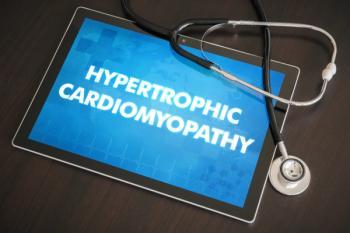
New Heart Failure Drug Likely to be Cost-Effective in Hospitalized Patients
In an analysis, researchers determined that Inpefa is cost-effective at commonly accepted willingness-to-pay thresholds in treating patients with heart failure who have diabetes.
The newly approved heart failure drug Inpefa (sotagliflozin) was demonstrated to be cost-effective in treating patients with heart failure, according to an analysis that was conducted by Medstar Health Research and sponsored by Lexicon Pharmaceuticals. The analysis was based on nine-month median follow-up data from the 1,222 patients enrolled in the phase 3 SOLOIST-WHF trial and designed to extrapolate costs, life expectancy, and quality-adjusted life expectancy.
The researchers determined that Inpefa is cost-effective at commonly accepted willingness-to-pay thresholds in patients with diabetes and worsening heart failure. The analysis used a base price of $450 for a month’s supply, and but researchers also found that that Inpefa was cost-effective at about $1,000 a month.
Compared with the placebo group, Inpefa added 0.39 quality of life years at an incremental lifetime cost of $29,449 for an incremental cost-effectiveness ratio of $75,510 per quality-of-life year gained, which was lower than the threshold of $100,000.
“The standard for cost-effectiveness is $150,000 per quality adjusted survival year,” Craig Granowitz, M.D., Ph.D., Lexicon’s senior vice president and chief medical officer, said in an interview. “This data is based on the baseline assumption of about half of that.”
Granowitz pointed out that that the study was done in older patients who were hospitalized with heart failure. These are the patients who are at a greater risk of rehospitalization and who have fewer treatment options. About 6.7 million Americans suffer from heart failure, with the prevalence expected to rise to 8.0 million by 2030. Heart failure is the leading cause of hospitalizations for individuals aged 65 and older, triggering about 1.3 million hospitalizations a year.
Lexicon hasn’t released pricing information yet, but company officials said it will be comparable to existing branded heart failure medications. Jardiance (empaglifozin) from Boehringer Ingelheim, which was granted an additional heart failure indication in February 2022, has a list price for a month supply of Jardiance is $570.48.
Inpefa was approved by the FDA on May 26 and is a once-daily oral tablet that reduces the risk of cardiovascular death, hospitalization for heart failure, and urgent heart failure visit in adults with heart failure or type 2 diabetes mellitus, chronic kidney disease, and other cardiovascular risk factors. It will be available later in June.
“Heart failure is the number one reason why seniors are hospitalized,” Granowitz said. “That's exploded because of the aging of the population, as well as increase prevalence of diabetes and obesity.”
Diabetes, chronic kidney disease, peripheral vascular disease, and stroke are diseases that increase the risk of heart failure. Heart failure patients have high mortality risks; 7% of patients die within 30 days of being discharged from the hospital, and almost 25% are readmitted to the hospital within 30 days.
In the clinical trial, Inpefa reduced the risk of cardiovascular death and heart failure readmissions in patients hospitalized for worsening heart failure events. “We think this is an important group of patients,” Granowitz said. “In a population of 100 patients, within 12 to 18 months there will be 100 clinical events in that group of patients.”
Inpefa is an inhibitor of both sodium-glucose co-transporter type 2 (SGLT2) and type 1 (SGLT1). Results from SOLOIST-WHF showed that Inpefa reduced hospitalizations for heart failure, urgent visits for heart failure, and the risk of cardiovascular deaths by 33% compared with placebo. Post-hoc analyses concluded that initiating treatment with Inpefa prior to hospital discharge reduced the composite of urgent care for heart failure or cardiovascular death within 27 days and about 50% at 30 and 90 days after discharge.
“The SGLT class has revolutionized the oral treatment of chronic heart failure. These agents now are recommended in all patients with heart failure,” Granowitz said. “Inpefa has a unique label, both in terms of its breadth, and its specificity and inclusiveness around heart failure, because this was developed as a heart failure drug.
The broad label encompasses heart failure patients across the full range of left ventricular ejection fraction, including preserved ejection fraction and reduced ejection fraction, and for patients with or without diabetes.
Newsletter
Get the latest industry news, event updates, and more from Managed healthcare Executive.























